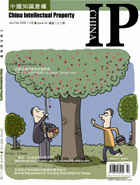
On December17, 2007 and January 24, 2008, former U.S. Senator Birch Bayh of Indiana, one of the sponsors of the Bayh-Dole Act, held two press conferences at the U. S. Embassy in Beijing for the Bayh-Dole Act — a reliable technology transfer mechanism in the U.S., and to discuss the impact of law on the commercialization of government-funded research. Mark A. Cohen, Senior Intellectual Property Attaché to the U.S. Embassy in Beijing attended the second press conference.
The U.S. Congress passed the Bayh-Dole Act co-sponsored by U. S. Senators Birch Bayh and Robert Dole, on December12, 1980. In fact, the Bayh-Dole Act set up a uniform patent policy among federal agencies funding research. Resulting from this law,universities can retain ownership of the IP rights developed under federally funded research programs. In addition, this law permits universities to license and commercialize their IP.
Mr. Cohen noted that "the Bayh-Dole Act has been the basis of similar legislation throughout the world, and is the model for commercialization of government funded R&D by giving people property rights to exploit it and develop it for the good of society." In 2002, The Economist called Bayh-Dole, "possibly the most inspired piece of legislation enacted in America over the past half century."
Presently, China is amending its Science and Technology Progress Law (S&T Law 1993), China's counterpart to the Bayh-Dole Act. It gives greater incentives to researchers to boost innovation. In the S&T Law 1993, there is no universal regulation on the IP rights developed from publicly funded research programs. The amended S&T Law was passed on December 29, 2007, and became effective on July 1, 2008. Amendments to the S&T Law allow scientists or their institutions to own patents on inventions, computer software copyrights, layout design of integrated circuits, and new varieties of plants developed from publicly funded research projects. Additionally, the government will not retract patents unless their holders fail to use them in "a reasonable period" (see Art.20 of the amended Law). Nevertheless, the amended S&T Law gives no clear stipulation on how to allocate the benefits from patent.
|
Copyright © 2003-2018 China Intellectual Property Magazine,All rights Reserved . www.chinaipmagazine.com 京ICP备09051062号 |
|
|



